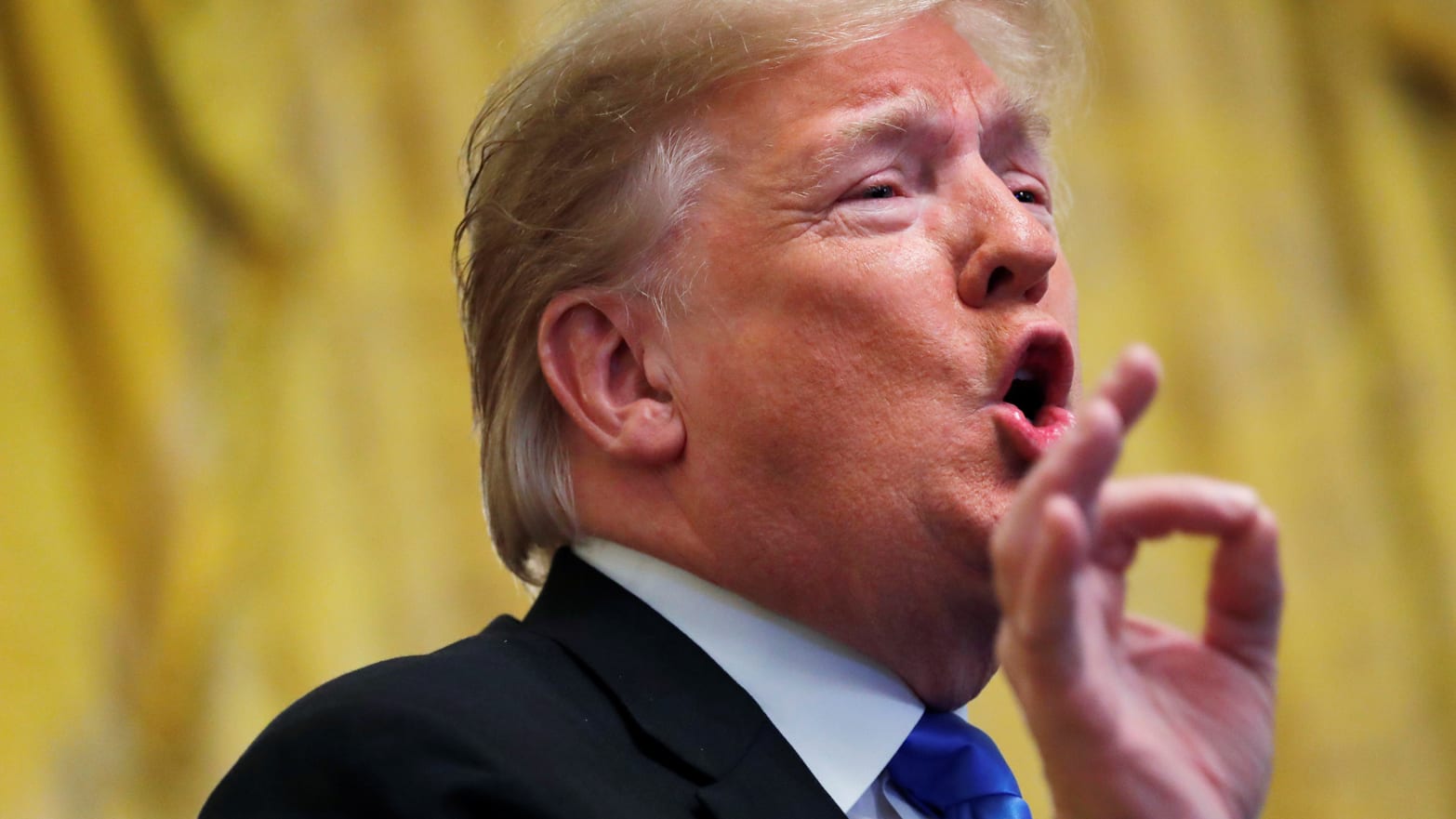Two days after 11 people were massacred by an anti-immigrant zealot, Donald Trump dialed up his anti-immigration rhetoric, proving that he has learned absolutely nothing from the deadliest anti-Semitic incident in American history.
The context was a pre-arranged interview on Monday with a reporter from Axios, in which Trump said he was “thinking about” an executive order to revoke “birthright citizenship,” the 150-year-old policy that any child born in the United States is automatically a U.S. citizen. It’s meant to stop undocumented and temporary immigrants from having American kids.
Like the lies about the “migrant caravan” (and even the term itself), and like sending troops to the border to protect us against a non-invasion that is not going to happen, the birthright citizenship issue is another example of Trump playing with fire on the question of immigration to fire up his base. Rather than tone down the rhetoric, Trump amps it up.
Contrary to most media coverage, the “proposal to end birthright citizenship” is not a proposal at all, let alone a draft memo or executive order, but merely continued deliberation on the part of White House staff.
It wasn’t not a scoop – it was a setup. As you can see in the video, Trump was noncommittal on the actual proposal – “It’s in the process,” he said – but concluded by complimenting Axios’ reporter Jonathan Swan on knowing about it.
“I didn’t think anybody knew about that but me. I thought I was the only one. Jonathan. I’m impressed.”
“Good guess,” Swan said, tapping at his head.
Not likely. In fact, Axios’s write-up of the interview says that the outlet “had been working for weeks on a story on Trump’s plans for birthright citizenship, based on conversations with several sources, including one close to the White House Counsel’s office.”
In other words, the White House planted the story, Axios asked about the plant, and Trump scored his points.
It was a setup and an exquisitely insensitive one at that. Two days earlier, Robert Bowers, motivated by lies about the so-called “migrant caravan” and Jews’ role in supporting it, shot up the Tree of Life synagogue and killed 11 Jews at prayer.
Since then, the incendiary rhetoric from Trumpist circles has only heated up more. Fox News’s Laura Ingraham mused about whether the refugees might be bringing “new diseases” to America. Presidential counselor Kellyanne Conway said that the attack was about “anti-religiosity.” And Vice President Mike Pence attended a service where a “Messianic Jew” – i.e., a Christian whose mission is to convert Jews – said a prayer over our dead in the name of “Savior Yeshua,” a heinous disrespect to the deceased.
Raising the birthright citizenship question itself is pure politics, not meant to be taken seriously as a legal matter.
Virtually no legal scholars believe this proposal is constitutional, which is one reason it hasn’t happened despite decades years of promises from the Republican Party, which has had it variously in its platform. The Fourteenth Amendment to the Constitution states clearly that “All persons born or naturalized in the United States, and subject to the jurisdiction thereof, are citizens of the United States and of the state wherein they reside.”
“Revoking birthright citizenship has been pending in Congress for twenty years,” said Polly J. Price, a law professor at Emory University who has written widely on immigration. “It never goes anywhere, not even to committee… If it were possible, somebody would have done it by now.”
And that’s legislation.
“Most people agree that Congress can’t do that,” Price told The Daily Beast. “Let alone the president on his own. No one’s even thought that until a week before the election. It’s just laughable in many ways.”
Last July, Michael Anton, a former Trump administration official, penned an op-ed in the Washington Post, citing the work of a lone law scholar that the Fourteenth Amendment, passed in the wake of slavery and reconstruction, was only meant to protect lawful immigrants, not unlawful ones.
Not only does this view contravene the constitutional text and 120 years of subsequent Supreme Court jurisprudence, which as recently as last year extended Fourteenth Amendment due process rights to all present within the United States, it is also incoherent. There were no immigration laws in 1868, when the amendment was passed. So how could the distinction between illegal and legal possibly make sense? The term “illegal alien” didn’t even exist.
Still, it is true that the question is, technically, an open one. Martha Jones, a professor of history at Johns Hopkins University who wrote a book on birthright citizenship and its roots in the post-slavery period, noted that “the question has not been reviewed by our courts before.”
Surely, though, what Trump is doing is politics. Leo Chavez, a professor of Anthropology at the University of California, Irvine, and author of several books on immigration policy, told The Daily Beast that “the president is raising the issue right before the midterm election as a dog-whistle to fire up his base about immigration.”
“The unfortunate outcome of the President’s blustering comments on birthright citizenship,” Chavez continued, “is that it diminishes the citizenship of those U.S. citizens he targets. Their sense of belonging and security as citizens is challenged, leaving them feeling vulnerable to social attitudes, hate speech, and treatment by fellow citizens and politicians.”
Of course, the bluster is also sure to enrage people like Cezar Sayoc, Gregory Bush, and Robert Bowers, all of whom attempted or committed xenophobic mass-murder in the last seven days alone. The timing is appalling.
As God says to Cain, who has just murdered Abel, “The voice of your brother's blood is crying out to me from the ground.” Only this time, the blood is still on the walls, floors, and pews of the Tree of Life synagogue, where it was spilled just a few short days ago.

